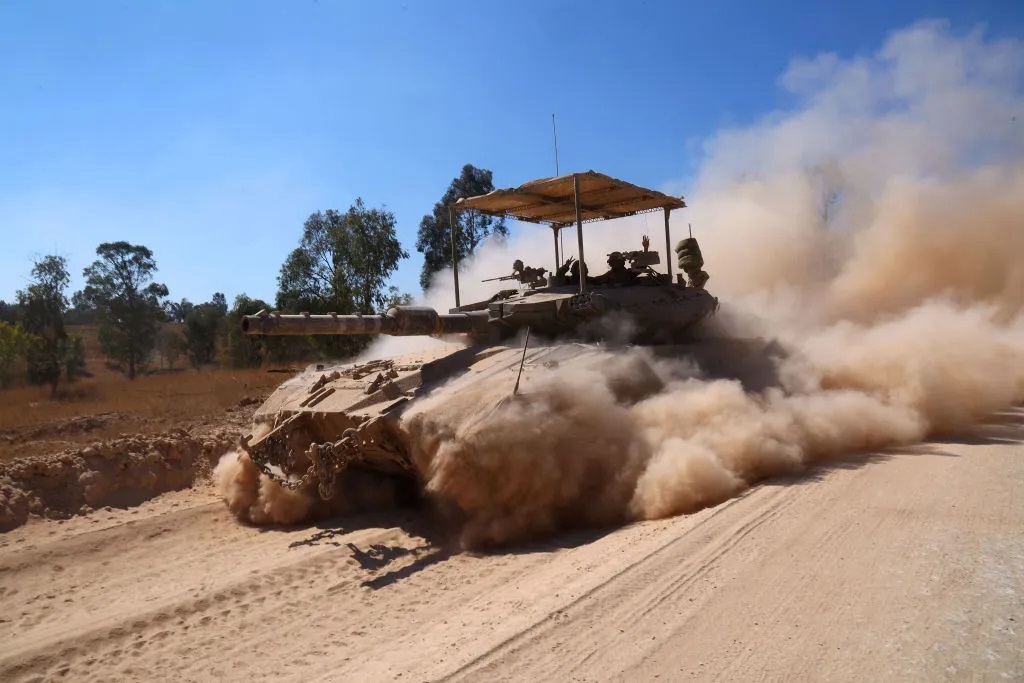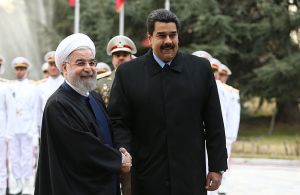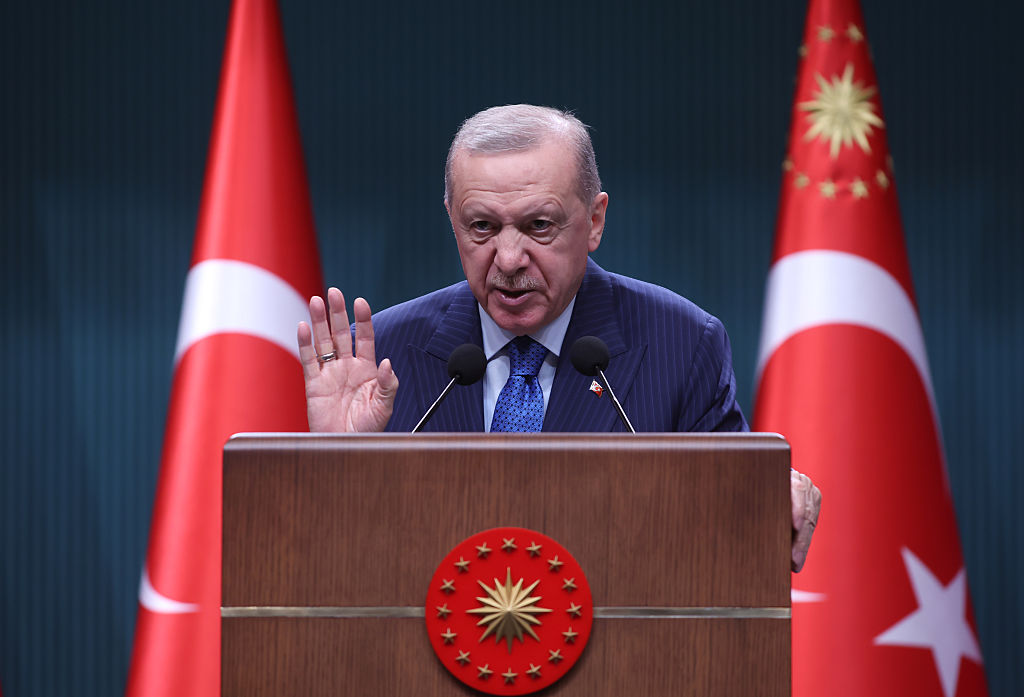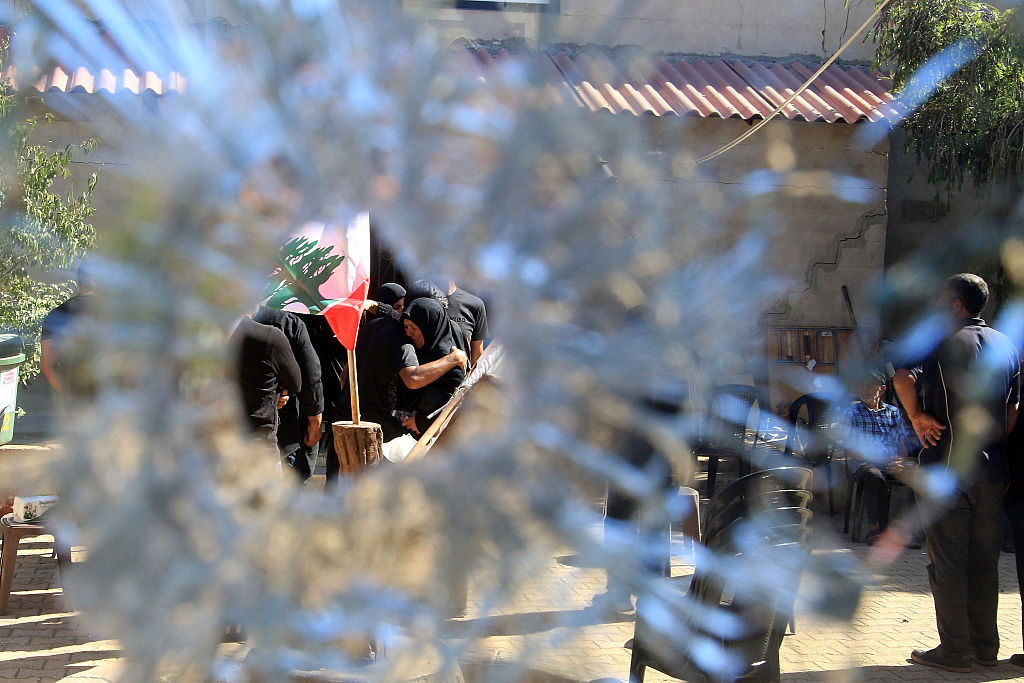Israel has started another round of strikes in Khan Younis, having left the Gazan city in April. This isn’t the first time that Israeli forces had to return to areas from which they’ve already withdrawn. As Hamas terrorists flee current fighting zones, such as Rafah in southern Gaza, the Israeli Defense Forces need to stop them from re-establishing fighting capabilities elsewhere.
Having advised Palestinian civilians to leave areas in which terrorist infrastructure and activity exist in Khan Younis, the IDF has carried out several strikes this week. This was also in response to a barrage of rockets fired from the area into Israel by the terrorist organization the Palestinian Islamic Jihad on Monday. The back-and-forth is likely to continue for some time.
Since the start of the war, Hamas suffered thousands of casualties and a considerable blow to its military capabilities. Much of its ability to fire rockets into Israel and operate effectively in Gaza has been diminished, and most terrorists now operate in small, uncoordinated guerrilla forces. Hamas’s ability to effectively control Gaza has also been severely compromised. But the organization has not been defeated. It remains in defiance of a deal for the release of 120 Israeli hostages in return for a temporary, but prolonged, ceasefire, and there are still many pockets of armed resistance that cause daily Israeli casualties, as it recruits more fighters to its ranks.
IDF officials have warned that Hamas cannot be fully destroyed. This has been cause of some tension between the army and Benjamin Netanyahu, who insists that destroying the terror organization remains the war’s goal.
Israel has been reducing forces in Gaza for the past few months, and plans to reduce them even further now. This represents a move to a new, less intense, phase of the war. However, there’s a risk that this phase could turn into a prolonged war of attrition for the IDF.
The lack of a ruling power in Gaza, especially one that could successfully keep Hamas from rebuilding its power, makes the IDF’s presence essential. Following a withdrawal of some of the forces, Israel is likely to keep troops in two key strategic locations in the strip; Netzarim corridor, which divides north and south Gaza, and the Philadelphi corridor, connecting Egypt to the Gaza Strip. Control of those will help prevent Hamas from rebuilding its power, for example by stopping the prolific arms smuggling from Egypt into Gaza, and can stop Hamas from carrying out further attacks against Israel, as well as provide the IDF easy access to operate against terrorists.
Keeping forces in Gaza will take a heavy toll on the IDF. Reserve soldiers have already made huge personal sacrifices by serving since October 2023, leaving behind careers and families. Soldiers are fatigued from months of intense fighting and are facing the prospects of another war, this time against Hezbollah and possibly Iran. Soldiers will also face constant threats from terrorists, drone and RPG attacks and roadside bombs.
Policing Gaza isn’t something that the IDF has an appetite for
Holding territory for a prolonged time period, with no exit plan and no strategic outlook, will likely be unpopular in Israel, especially as casualties mount. In comparison, the IDF’s long presence in southern Lebanon, between 1985 and 1999, became deeply unpopular and resulted in a hurried, poorly planned withdrawal of forces that helped Hezbollah establish itself as a significant military and political force in Lebanon.
The IDF is understandably unhappy about the prospect of remaining in Gaza without a plan for a local government to eventually take over. Hamas’s loss of power has also led to a dramatic rise in crime by local armed gangs. If the IDF remains in Gaza for low-intensity fighting, it may be required to restore law and order, which will necessitate a lot of resources and investment, and place soldiers at even greater risk. Policing Gaza isn’t something that the IDF has an appetite for.
Netanyahu’s plan to withdraw forces risks being criticized by the Israeli public, smilingly giving Hamas what they’ve wanted all along, but without the return of hostages. The lack of political will in Israel to find a long-term solution for Gaza, complicates things and risks involving Israel in a long-term, unwanted stay in Gaza. Netanyahu’s mantra of achieving “total victory” has turned out to be unrealistic, especially without finding an alternative to Hamas that will remove it from power permanently.
This article was originally published on The Spectator’s UK website.


























Leave a Reply